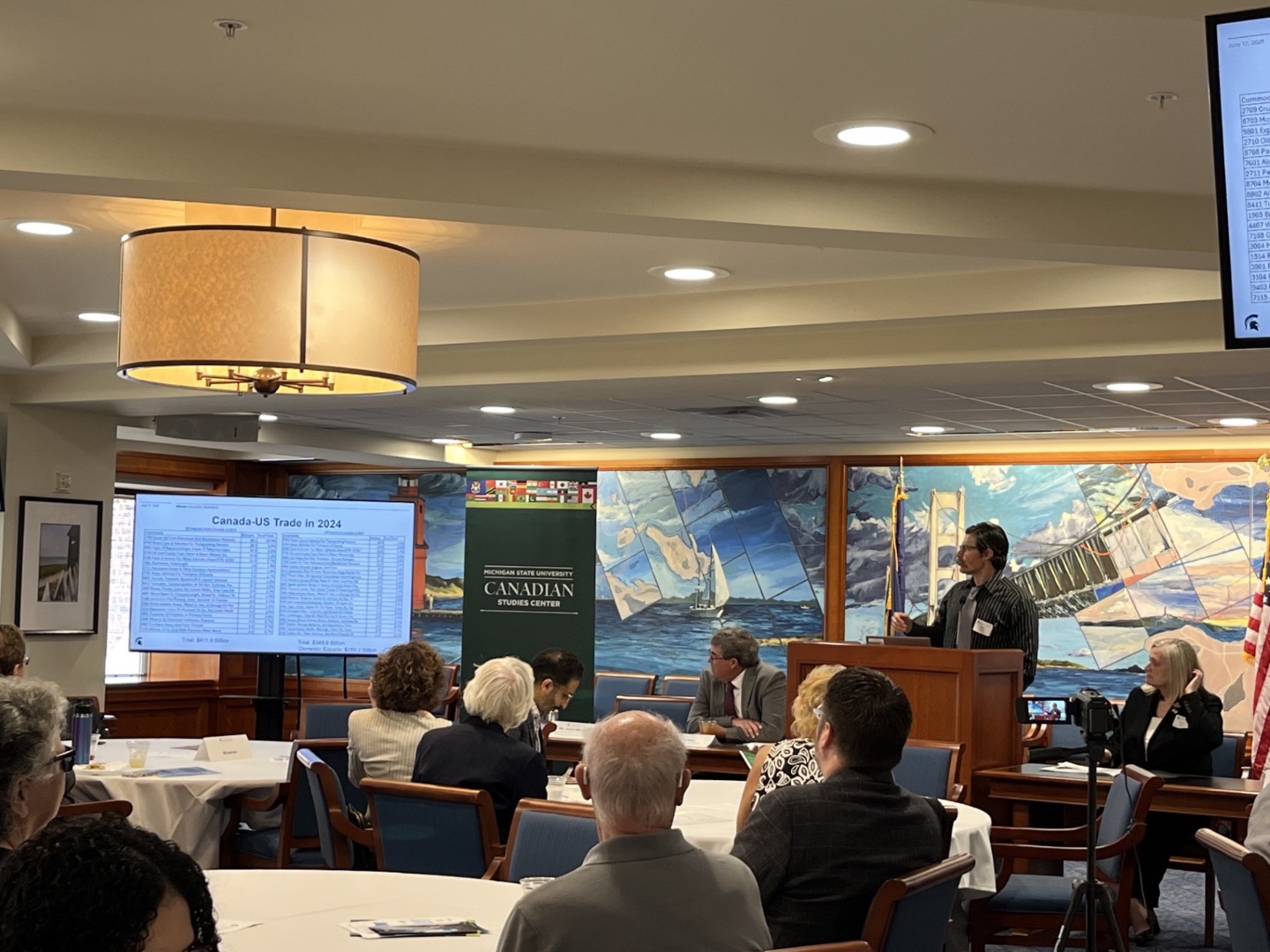
Michigan State University’s Canadian Studies Center continues to increase its efforts to build relationships and promote public awareness about the United States–Canada relationship through its Canada Connect platform. The center's recently launched Canada Connect policy brief initiative leverages the expertise of MSU faculty and partners in Canada about policy-relevant issues affecting both Michigan and its northern neighbor.
The focus of the first policy brief was the economic impact of U.S. tariffs on Canadian imports on Michigan’s vehicle manufacturing sector. Jason Miller, professor of supply chain management in the Eli Broad College of Business and a member of the Canadian Studies Center’s faculty advisory council, wrote the brief after analyzing trade data through April 2025.

“Over 60% of Michigan’s imports from Canada are either finished vehicles or auto parts,” Miller said, during a public forum last month when the first policy brief was presented.
Miller’s analysis showed tariffs placed on Canadian goods, as well as on steel and aluminum, have resulted in a sharp decrease in trade with Canada, and the tariffs put in place by the Trump administration threaten tens of thousands of workers in Michigan’s auto manufacturing plants.
“U.S and Canadian firms have deeply integrated cross-border supply chains, especially in the motor vehicle and parts manufacturing ecosystem. We continue to await clarity as to the ultimate tariff rates that go into effect to fully understand the economic consequences of current U.S. trade policies,” Miller said.
Canadian Studies Director Rebecca Malouin is optimistic about the future of Canada Connect’s policy brief initiative. “Ideally, we are planning for two or three a semester, working with faculty in various colleges and units across campus. There’s no shortage of important issues to discuss,” Malouin said.
“Collectively, we must understand how policies can have serious consequences for Michiganders and Canadians. The goal is to educate legislators and other stakeholders, engaging them in discourse that is meaningful to our everyday lives.”
In the fall, the Canadian Studies Center will launch the next Canada Connect policy brief and forum, which will focus on the U.S.-Canada EV corridor and EV production.